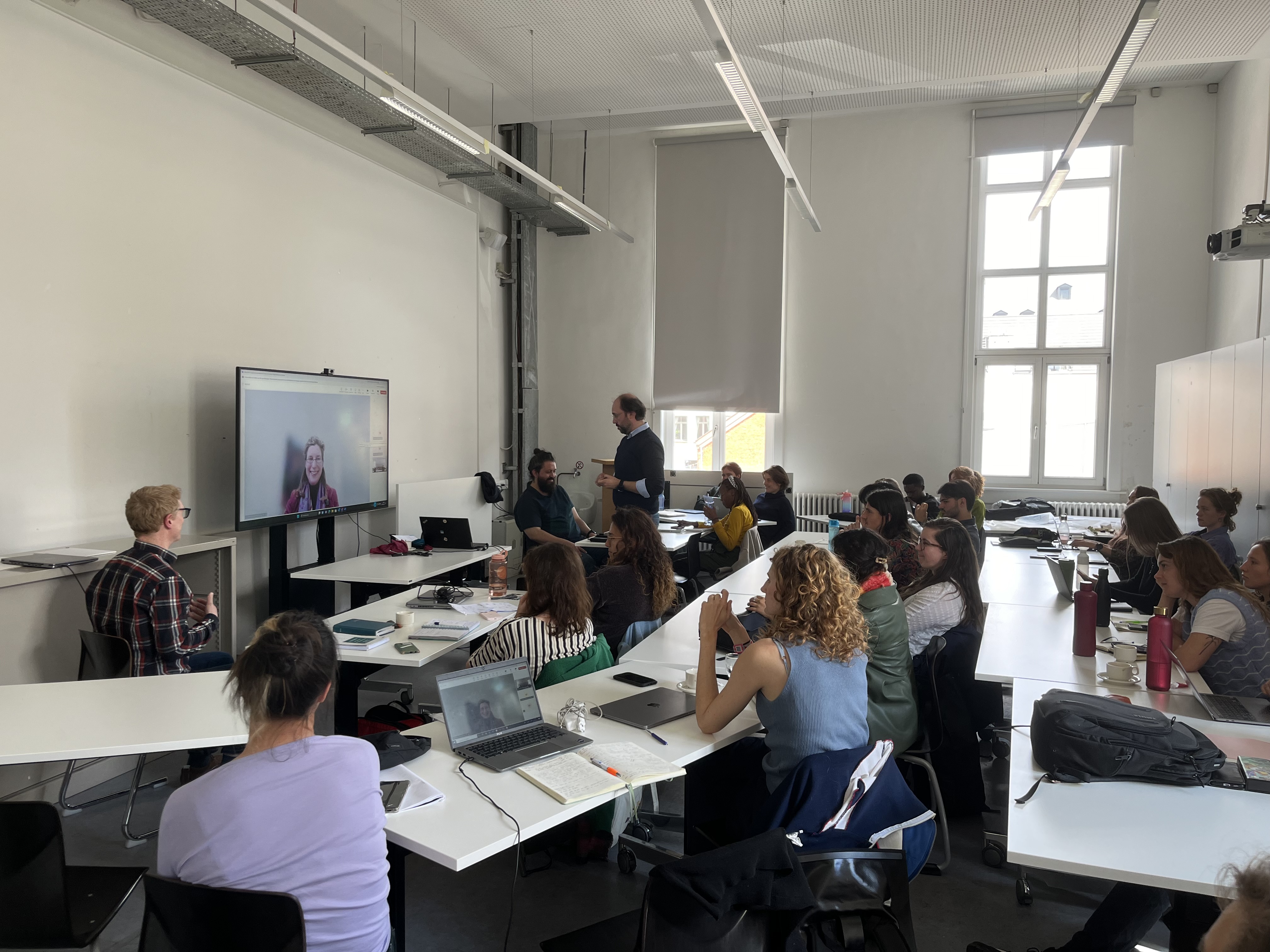News
Workshop: Rethinking Academia – How Bottom-Up Initiatives Can Effectively Shape European Policies
This workshop brought together early career researchers (ECRs), academic staff, and policy-minded participants to reflect on how academia can be reshaped through grassroots efforts and bottom-up engagement. The central question was how individuals and collectives—particularly those with limited institutional power—can influence the policies that govern their working conditions, careers, and contributions to knowledge production. The event built on the broader theme of democratic participation in academia, drawing inspiration from initiatives with the aim of enhancing public agency in decision-making like the citizen assemblies, which the Irish government implements or the G1000 framework from David van Reybrouck.
The speakers in the session belonged to several European networks such as the Researcher Mental Health Observatory and the network for Professionals in Doctoral Education:
Dr Brian Cahill (PATTERN and SciLink) to give insights on how bottom-up initiatives can effectively shape European policies.
Dr Alexandra Freeman (Octopus publishing platform/House of Lords) to give insights on revolutionizing the publication system
Yves Bettignies, representative of the PhD and Postdoc Society at ULB.
Key themes & discussion points discussed at the workshop
How can ECRs get involved in influencing policies that shape academia?
Participants explored both formal and informal routes to policy engagement with regard to improving academic culture and researcher mental health. Formal involvement often includes joining university committees, governance boards, or student and doctoral councils. However, the group noted major structural and cultural barriers:
- Structural Constraints: These include time pressures, unpaid labor, and overcommitment, which make it difficult for ECRs to take on additional responsibilities.
- Cultural and Systemic Barriers: Hierarchical university structures often dilute or ignore input from junior researchers. Participation may be symbolic rather than impactful.
- Language Barriers: Especially for international researchers, lack of English-language access to key resources (policy documents, mental health support, internal communications) effectively excludes them from decision-making processes.
One proposal was to develop citizen-style panels or advocacy training tailored to ECRs, empowering them with both knowledge of university structures and skills to articulate policy feedback effectively.
What small but meaningful changes could ECRs collectively push for, and how might they start?
Several low-barrier, high-impact ideas emerged:
- Push for Recognition of Diverse Outputs: Advocate for PhD assessments and hiring criteria that recognize public engagement, science communication, and teaching—not only publications.
- Transparency in Institutional Data: Campaign for open access to data on PhD completion rates, contract renewals, and supervisor evaluations.
- Improved Representation: Ensure that doctoral researchers are formally included in student councils and key committees.
- Evaluation of Supervision Quality: Lobby for systematic feedback mechanisms where doctoral researchers can safely evaluate their supervisors, with institutional accountability attached.
- Language Inclusion: Request bilingual (e.g., Dutch and English) versions of all official documents, especially those relevant to well-being and institutional rights.
Starting points include peer organizing, petitioning, and forming bottom-up collectives outside the formal hierarchy. Participants highlighted the need to “use the tools of the university against itself” by mastering institutional language and procedure to push for reform from within.
What could institutions, funders, or supervisors do differently to better support ECRs?
Institutional and systemic reforms discussed included:
- Contractual Reforms: Advocate for standard 4-year PhD funding across Europe, as it enables better project development, improved research quality, and more stable transitions post-graduation.
- Reduce Precarity Post-Contract: Institutions should take responsibility for visa extensions, access to university services, and clear communication post-contract.
- Supervision Accountability: Institutions should develop robust systems for evaluating supervisors, including anonymous input from ECRs, which can feed into performance reviews.
- Dedicated Allies and Ombudspersons: Institutions need trustworthy intermediaries (e.g., truly independent ombudspeople) for ECRs to report grievances or seek support without retaliation.
- Funders’ Role: Funding bodies can lead by attaching ECR well-being and professional development criteria to grant evaluations.
What is the role (and limit?) of activism in science? How do you see it intersecting with your current role?
The workshop fostered a nuanced discussion about the role of activism within academia. Participants agreed that activism:
- Is Essential, Yet Risky: It can drive awareness, solidarity, and institutional change, but can also come at a professional cost, especially in rigid hierarchies.
- Often Requires Going Outside Formal Channels: Many discussed the limits of committee participation and stressed the value of bottom-up organizing, disobedience, or even subtle acts of non-cooperation.
- Is Not Equally Accessible: Due to time, visa status, job insecurity, or fear of professional consequences, many ECRs feel disempowered from participating in activism.
- Needs Strategic Framing: Framing advocacy efforts in terms of institutional benefit, e.g., better PhD completion rates, improved mental health and better institutional


